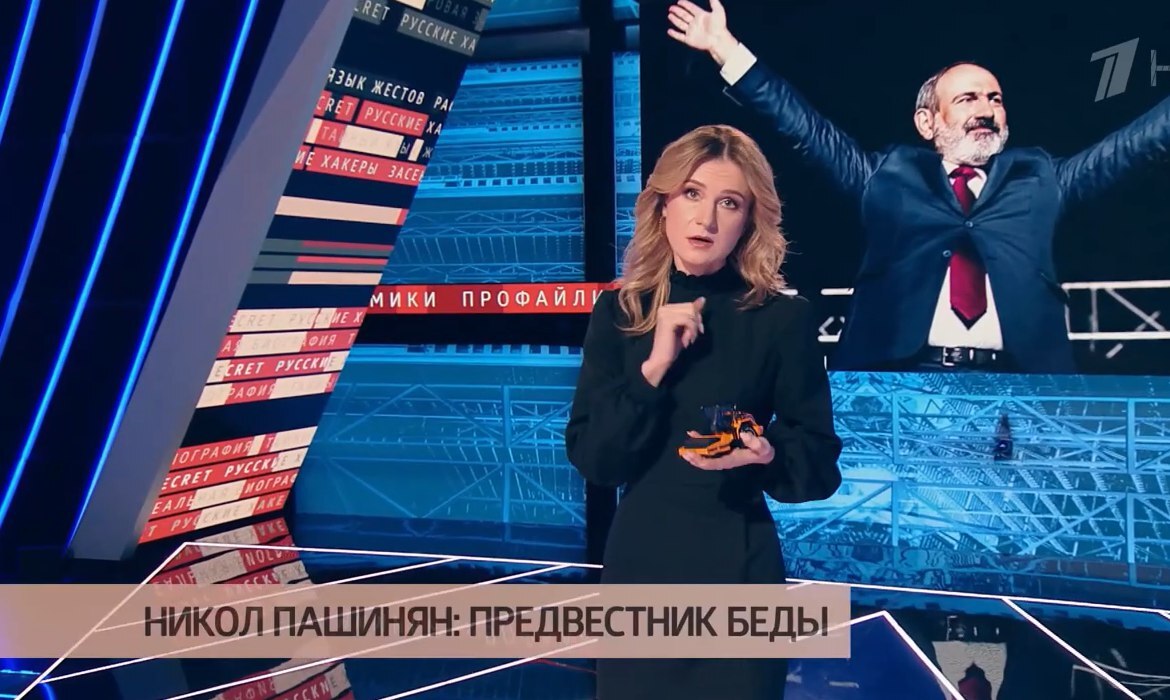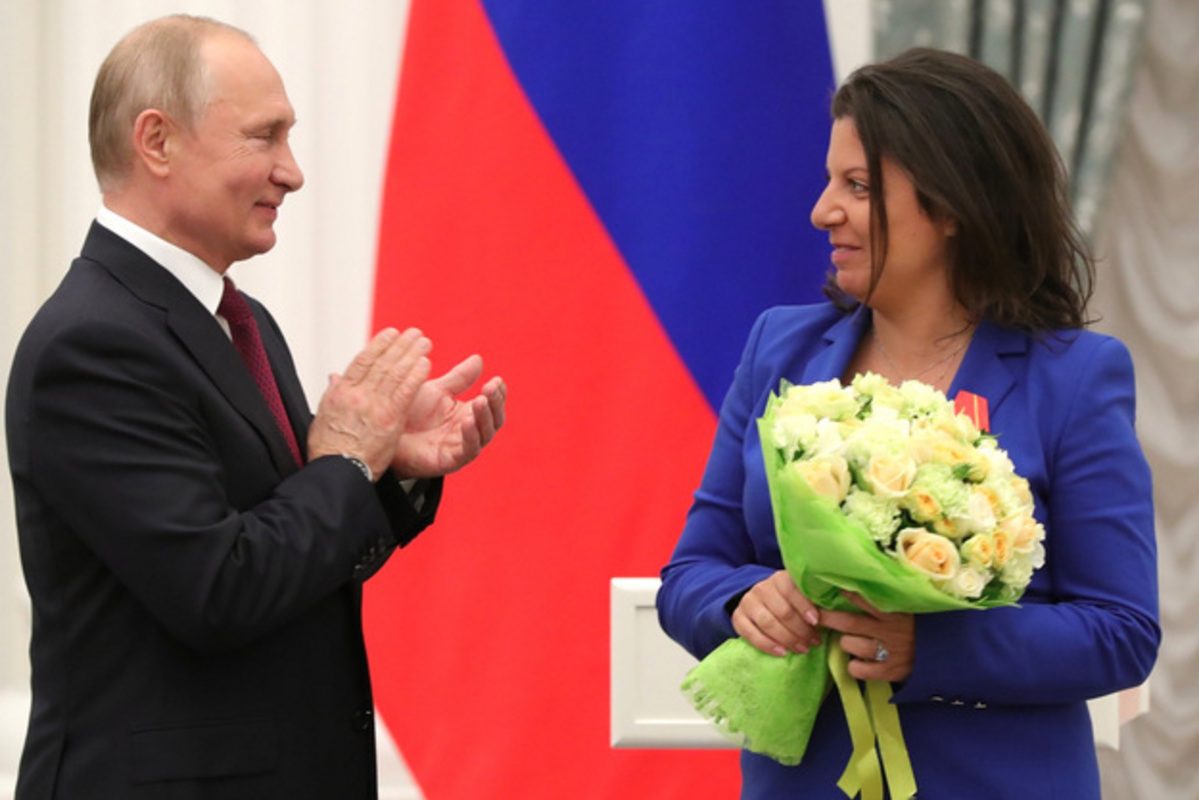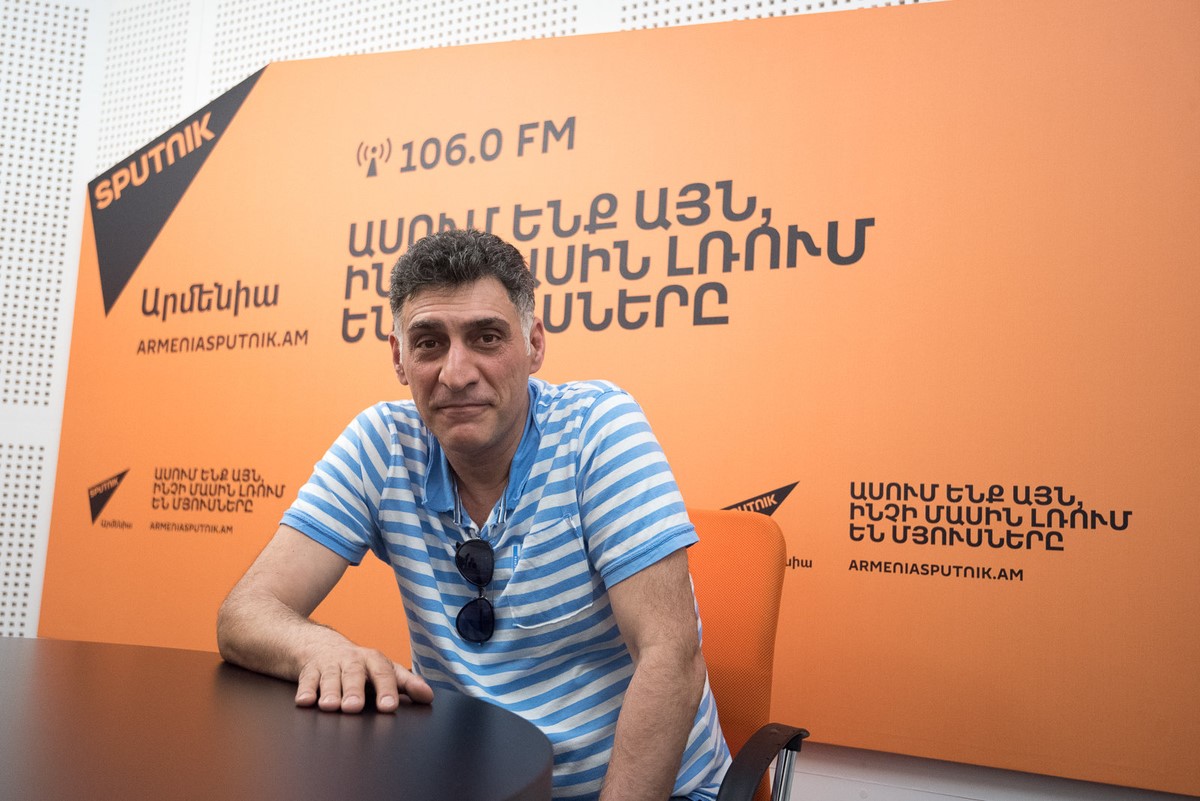Armenia suspends broadcast of Russia’s Channel One: here’s why
Armenia halts Russia’s Channel One
The broadcast of the Russian “Channel One” in Armenia has been suspended. It is officially announced that the company failed to fulfill its contractual obligations and did not pay the debt for 2.5 months of airing. We are talking about a small amount of $3000 for each month.
“The channel’s broadcast in Armenia has been temporarily suspended until the debt is fully paid off,” said Minister of High-Tech Industry Mkhitar Hayrapetyan.
Although the suspension of the broadcast is explained by the Russian company’s failure to meet its financial obligations, the content of the programs has been frequently discussed in Armenia in recent months. There have been discussions about the possibility of removing Russian channels from the air, as their programs “contain lies, manipulations, and insults directed at the Armenian people and the country’s leadership.”
The most recent example was the broadcast on the Russian “Channel One” program “Great Game” on May 27. In this episode, the first deputy chairman of the State Duma Committee on CIS Affairs, Konstantin Zatulin, attributed statements to the prime minister of Armenia that he never made, presented distorted facts regarding the departure of Armenians from Nagorno-Karabakh and the demarcation of the border with Azerbaijan.
In Armenia, three Russian television channels are broadcasted. There is an agreement between Armenia and the Russian Federation on “Cooperation in the field of mass communications”. Article 5 of the document provides for the “exclusion of programs containing offensive content towards peoples and national values”. Corresponding violations are recorded by the Armenian National Commission on Television and Radio. However, the committee does not have the authority to remove channels from the air. The decision to disconnect channels lies within the competence of the Ministry of High-Tech Industry.
- Pashinyan: ‘External forces want to provoke war in Armenia for the sake of a change of government’
- “Putin won’t offer Pashinyan anything, instead urging him to avoid aligning with the West.” Expert opinions
- “Armenia did not decide to align itself with the West just today,” – Pashinyan to British media
“Zatulin spreads knowingly false information on the ‘First Channel’ broadcast”
Alongside the information about the suspension of the ‘First Channel’ broadcast, the latest episode of the program ‘Big Game’ is being discussed in Armenia.
The fact-checking platform FIP.am (Fact Investigation Platform) analyzed the broadcast of the program from May 27th and found that the guest of the program, Konstantin Zatulin, made at least three false statements when talking about Armenia.
He stated that “Pashinyan abandoned his compatriots in Nagorno-Karabakh, essentially deserted them, betrayed them, resulting in the exodus of Armenians from Nagorno-Karabakh.” According to him, Pashinyan announced which two countries of the CSTO military bloc were helping Azerbaijan prepare for war in Karabakh, emphasizing that “their capitals begin with the letter ‘M’,” meaning Minsk and Moscow.
Then, the Deputy Chairman of the State Duma Committee on CIS Affairs touched upon the process of delimitation of the Armenian-Azerbaijani border and stated that “the Armenian government is betraying the interests of Armenia itself by handing over territories that Armenians consider their own.”
The fact-checking platform thoroughly examined all of Zatulin’s statements and refuted them. According to the conclusion published on the platform’s website:
- On September 19, 2023, it was not Armenia and its leadership that left the Armenian population unprotected when Azerbaijani armed forces attacked, but the Russian peacekeeping mission deployed here;
- Pashinyan did not mention capitals starting with the letter “M” and did not mention Moscow and Minsk;
- the process of delimitation and demarcation of the borders between Armenia and Azerbaijan is carried out according to the maps of the General Staff of the USSR of 1976, which means preserving the inviolability of their administrative borders at the time of the Soviet Union’s dissolution.
Yerevan is ready to remove Russian channels from the airwaves and even terminate the agreement unilaterally
A month ago, minister of High-Tech Industry Mkhitar Hayrapetyan commented on the issue of broadcasting Russian television channels. He emphasized that the Armenian side is inclined to constructively resolve the issue. However, he did not rule out the possibility of discontinuing the broadcast of Russian channels in Armenia if Moscow does not agree to Yerevan’s proposal to amend the bilateral agreement.
It is known that Armenia has proposed to edit the document, making changes that would allow for sanctions in case of violations.
“We simply want to thoroughly resolve the issue, in the form of a document, an agreement, so that there is no longer any need to touch on this topic for us or for you, and so that our citizens do not waste their energy thinking about it,” Hayrapetyan told journalists.
Shortly before this, the minister stated in parliament that if the proposals of the Armenian side are not accepted, Armenia may consider the possibility of terminating the agreement unilaterally.
The discussion has been ongoing for several months
The possibility of disconnecting Russian television channels has been actively discussed in Armenia since last year. In September 2023, the “Channel One” aired another episode of the program “Heir of Tutti’s Puppets.” It discussed the prime minister of Armenia. The program was titled “Nikol Pashinyan: Harbinger of Disaster.”
As announced by Armenian experts, the entire program consisted of manipulations, falsifications of facts, and insulting statements against the authorities of Armenia. Official Yerevan interpreted these statements as “completely unacceptable.” The Russian Ambassador was summoned to the Ministry of Foreign Affairs, and a protest note was handed to him.
The channel did not lose its broadcast then. Later, there was information that consultations were held, and “the Russian side acknowledged the fact of violations.”
In February 2024, Yerevan sent a protest note to the Russian Federation regarding the violation of the agreement signed between the two governments.
Regarding other violations and penalties
At the end of March 2024, the ‘Television and Radio Network of Armenia’ blocked the broadcast of the author’s programs ‘Evening with Vladimir Solovyov’ and ‘Sunday Evening with Vladimir Solovyov’ on the territory of Armenia, which were aired on the public channel ‘PLANETA.’
The Commission on Television and Radio of Armenia announced that violations of the Armenian-Russian agreement had been observed for a long time. To the extent that Solovyov allowed himself to threaten Armenia with the loss of statehood on air.
“The Republic of Armenia cannot tolerate programs of such content that may question the dignity of our state and people,” said Minister of High-Tech Industry Mkhitar Hayrapetyan.
In December of last year, the Commission on Television and Radio decided to suspend the license of the company ‘Tospa,’ which retransmits programs of the radio station ‘Sputnik-Armenia,’ for one month.
The Commission identified violations in five programs. In particular, in an episode of the program ‘Friday with Tigran Keosayan.’ The state regulator announced that the author and host allowed himself insulting statements against the Armenian people and the head of the state, made threats, and calls to violence.
Here are some typical comments from Armenian social media users:
‘All things Russian should be closed forever.’
‘Who gave them the right to make decisions for me and tell me what to watch on TV?’
‘This just had to be done and long ago.’
‘This is a way to distract us from internal problems, to occupy the minds of Armenian society with other issues for a few days.’
‘All things Russian need to be shut down, whether it’s a TV channel, school, or institution. We’ve had enough.’
‘Again, some half-heartedness, some explanations that they didn’t pay the money. Say it straight: you are working against the existence of Armenia. You are violating the interstate agreement. If you don’t want to lose your airtime, allow us to broadcast an Armenian channel from Yerevan throughout the territory of Russia – in Russian. And we will invite experts day and night who will criticize Putin, his treacherous policy towards Russia and the Russian people, criticize the war he is waging, which has become a tragedy for his people and his state.’






















